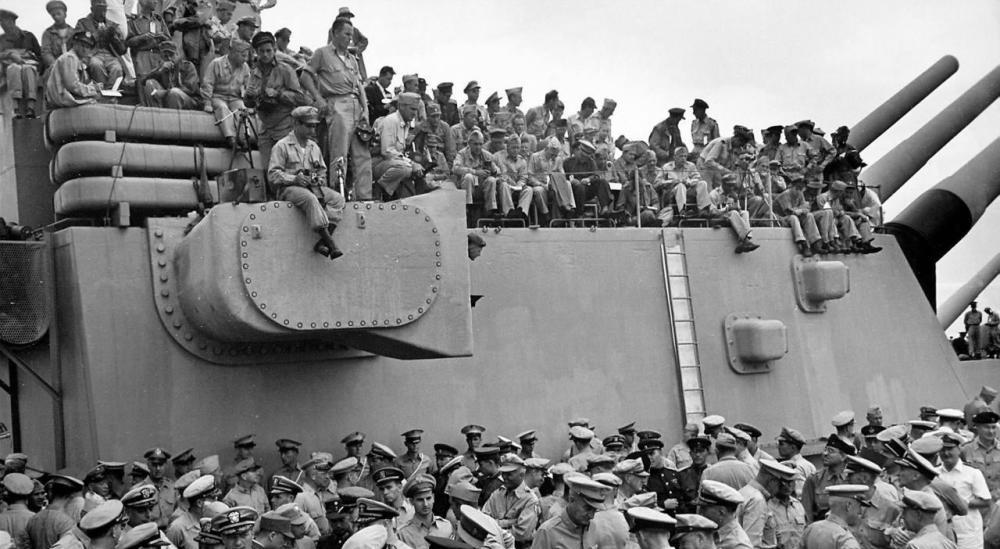On August 15, 1945, the Emperor of Japan announced his unconditional surrender. On September 2, Japanese representatives boarded a U.S. warship and formally signed the instrument of surrender. Chiang Kai-shek, who was far away in Chongqing, was overjoyed and immediately sent an urgent telegram to Okamura Ningji, commander-in-chief of the Japanese invading army, asking him to quickly send a surrendered representative to accept the orders of the commander-in-chief of the Chinese army. During this period, the Japanese army should immediately cease any military operations and wait for the surrender arrangement.

Subsequently, the Nationalist government issued orders for several days, designating the surrendered area and the surrendered officer, and asking Okamura Ningji to order the Japanese army to disarm in accordance with the requirements of the Nationalist government. The surrender ceremony in North China was scheduled to be held in Beiping, presided over by Sun Lianzhong, commander of the 11th Theater, at Huairen Hall in Zhongnanhai. Sun Lianzhong appointed Lu Wenzhen, deputy chief of staff and head of the Operations Division, as the director of the Beiping Forward Command Post, and went to Beiping one step ahead to arrange the surrender ceremony.
On September 9, Lu Wenzhen and several staff officers landed at Beiping Xiyuan Airport by plane. Tan Takahashi, chief of staff of the Japanese military department, had been waiting here for a long time, and when he saw Lu Wenzhen come down, he took a step forward to shake hands and welcome him. Lu Wenzhen ignored it, pointed to the stool near the negotiating table nearby, and said, Please sit down. After a brief introduction, Lü Wenzhen said that he wanted to enter the city to set up a surrender headquarters, and Takahashi Tan quickly walked to the Japanese military vehicle that was prepared and pulled the car door to ask Lü Wenzhen to get on the car. But the victorious nations could not enter the city in the car of the defeated countries. Lu Wenzhen didn't even look at it, and went directly to the car of the China Airlines Advance Office. A military vehicle with a striking Chinese flag carried Lu Wenzhen into the ancient capital that had fallen for 8 years.
On the day of entering the surrendered command post, Lü Wenzhen issued an order to the Japanese army in Peiping, summoned representatives of the Japanese army to negotiate the surrender at the command post, and clearly instructed that sabers and medals were not allowed to be worn. At this time, the Japanese military leadership was quite dissatisfied, believing that although they were defeated, they should maintain a decent surrender. That night, the Japanese army took Qu as the straight and entrusted the commander-in-chief of the North China Pseudo-Security Army to intercede.
Seeing that the Japanese army still wanted to maintain its dignity, and the commander of the puppet army had a face of an ugly traitor who was fighting for the face of his master, Lu Wenzhen refused on the spot. He said with a straight face that the medals of the Japanese were all exchanged for the lives of Chinese, and the face they wanted was to humiliate Chinese. I am the surrendered chief officer, and I cannot see anything that damages China's face when I negotiate the surrender, and the victor needs honor even more. The commander of the puppet army returned to his life in a gray and slippery manner.
Three days later, Lu Wenzhen summoned the Japanese representatives to announce the specific matters of the surrender ceremony. In response to the suggestion made by the Japanese army, Lü Wenzhen said that he could agree to the surrender document in triplicate, but refused to use the original in Japanese, but wrote it in Chinese to reflect the superiority of the victory. The little cleverness of the Japanese army was beaten back on the spot.
Originally, the plan was to carry out the surrender ceremony at the noon gate of the Forbidden City, but When Lu Wenzhen arrived there, the noon gate place was too small, and the surrender ceremony could not be solemn, and he wanted to find a larger place to carry out it. Lü Wenzhen walked around the palace with his staff officers, and finally picked a good place, that is, the magnificent Taihe Hall. As soon as Lu Wenzhen arrived there, he was immediately attracted by the square of the Taihe Temple. The square here is too big to accommodate more than 100,000 people, let alone a hundred thousand people, and he decided on the spot that the surrender ceremony would be held here.
Subsequently, Lü Wenzhen assigned specific tasks to his staff officers, and he detailed the scale and procedures of Peiping's surrender, and asked them to make on-site arrangements separately. After some intense preparations, on October 10, 1945, on this special day, 200,000 Peiping citizens witnessed the surrender of the Japanese army at the Taihe Temple. At the scene of the surrender, the citizens cheered victory, and the Representatives of the Japanese Army represented the bald heads who had lost the battle one by one. Chinese finally raised his eyebrows.